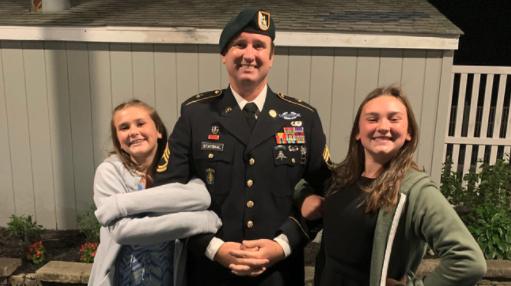WASHINGTON (SBG) — After a series of delays, the Department of Defense has finally created an interim rule that will allow members of the military and their families to file claims for medical malpractice. But Spotlight on America dug through the fine print and discovered the military will still maintain control over who is granted compensation, with much of the process handled behind closed doors.
A single document that contains more than 19,000 words spread over 22 pages is finally ending a decadeslong battle for service members and their families. It lays out the pathway for service members or their families to file malpractice claims for injuries or deaths resulting from treatment within the military system. For Sergeant Richard Stayskal, a former Green Beret, the release of the Department of Defense’s rule is a huge victory. He says, “It was something that seemed almost impossible, near impossible at the time. A lot said it was. But it’s coming through.”
Stayskal wasn’t sure he’d live to see it happen. He’d been fighting the DoD for years, taking his case to Capitol Hill. In emotional testimony in 2019, he told Congressional lawmakers how military doctors repeatedly misdiagnosed his lung cancer, leaving him with a terminal illness and no legal recourse. His goal was to change a system that effectively barred service members from suing the military for medical malpractice. As a Spotlight on America investigation detailed, the ban came from a 1950 Supreme Court decision known as the Feres Doctrine.
But now, in part because of Stayskal’s advocacy, military members can finally seek compensation from the DoD. A new rule named in his honor lays out the process for the military to begin evaluating and paying claims filed by service members hurt or killed by military doctors.
But Spotlight on America discovered accountability may be tough, considering much of the process will happen behind closed doors. We dug through the fine print and discovered some of the records the DoD will use to make decisions about the physicians involved in malpractice cases are confidential, so people making a claim won’t even be able to see them. Also, the language in the rule shows the review and settlement of malpractice claims will be handled solely by the military itself, with no outside court review. And any appeals will be handled by a board of defense department officials with their decisions deemed “final and conclusive.”
One positive change under the new rule is that malpractice cases will be reviewed and sent to a national databank that tracks all doctors nationwide, a move those impacted say will provide more accountability for military physicians if and when they leave the service.
by JOCE STERMAN, ALEX BRAUER and ANDREA NEJMAN

 Call Now- Open 24/7
Call Now- Open 24/7





